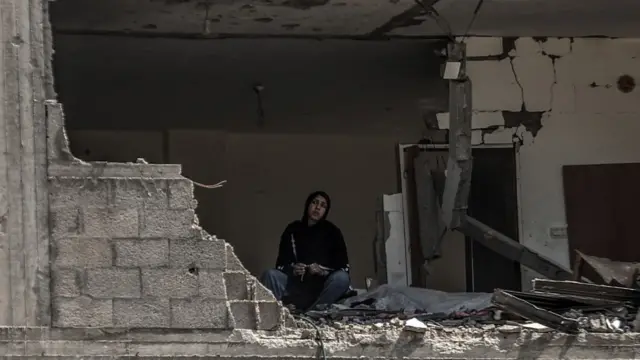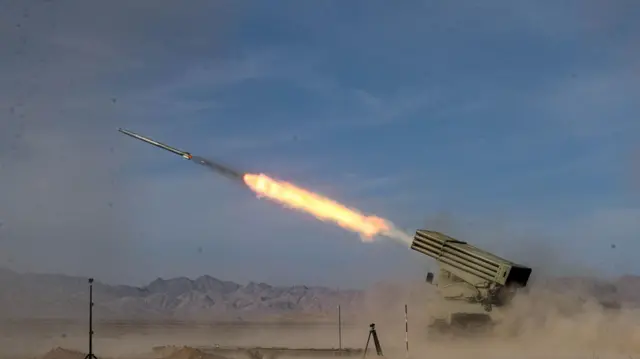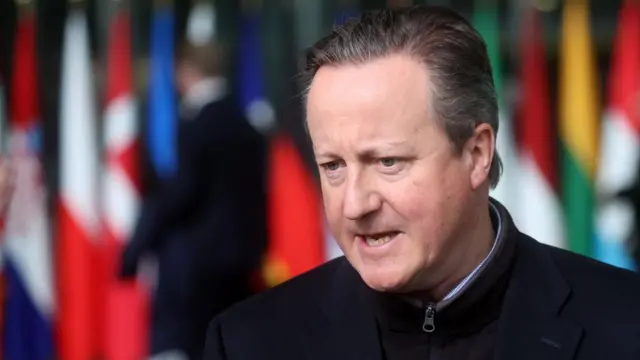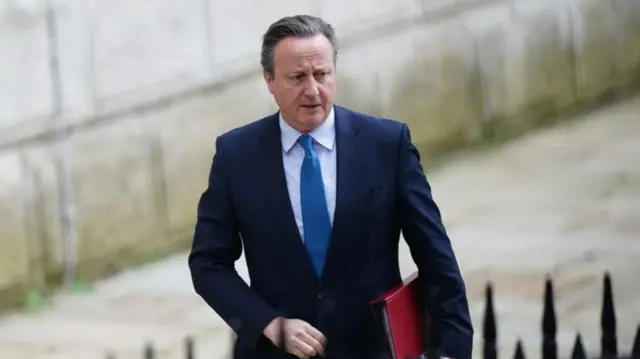A look at Gaza's current humanitarian situationpublished at 10:38 BST 15 April 2024
 Image source, Getty Images
Image source, Getty ImagesEarlier, the UK's Foreign Secretary David Cameron said a number one priority for Westminster is ensuring that enough aid gets into Gaza - and hostages get out. Let's remind ourselves of the current humanitarian situation in the Palestinian enclave:
- Since Israel began its military campaign against Hamas, the UN says almost all of Gaza's population (more than 2.3 million people) have been displaced and lack access to sufficient shelter, food, medical services, clean water, and education
- More than 33,000 Palestinians have been killed in the conflict, which began after Hamas attacked Israel on 7 October, killing 1,200 Israelis and taking about 250 hostage - around 130 of them remain unaccounted for and at least 34 of them are presumed dead
- Gaza's hospital system has been described by the UN as "decimated" and lacking resources, following sustained raids by the Israeli military on hospitals it said Hamas was using as control centres
- The UN continues to warn that famine is imminent in northern Gaza, where seven aid workers were killed by an Israeli strike earlier this month - leading US President Joe Biden to warn Israeli PM Benjamin Netanyahu that more needed to be done to protect Palestinian civilians and aid workers during the conflict
- Two additional humanitarian routes into Gaza have since been approved by Israel, which has vehemently denied using starvation as a weapon of war
- Still, aid agencies maintain that not enough supplies can reach civilians - and at least 27 children have died as a result of malnutrition since October, according to the World Health Organization




